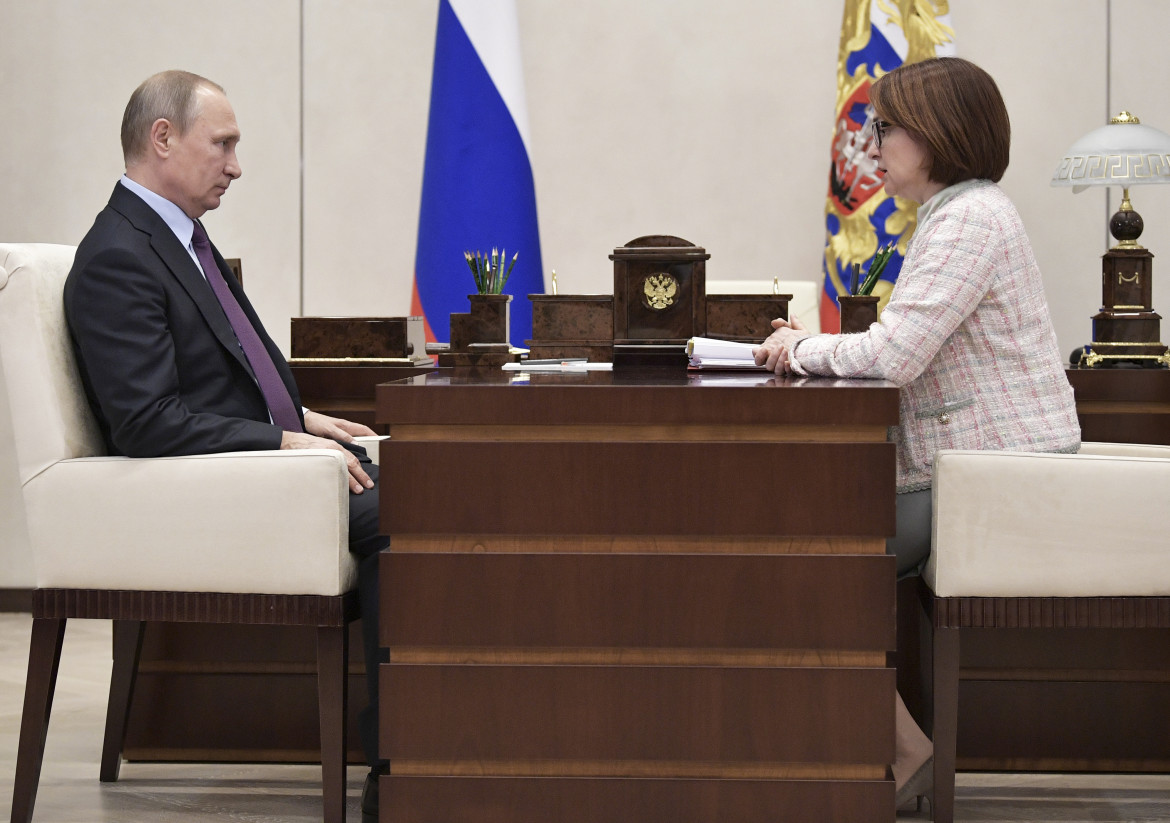Analysis
Sanctions are hurting the Russian economy, but is it enough?
The head of the Russian Central Bank said the sanctions are imposing structural changes in the Russian economy, also changing its ‘business model’ with the rest of the world — a stark contrast to Putin’s bravado.

It is rumored that the governor of the Russian Central Bank, Elvira Nabiullina, had intended to resign immediately after the invasion of Ukraine on February 24, but she was dissuaded by obvious political reasons.
As we know, searching for the truth in a time of war is a prohibitively difficult task. What seems certain now, however, is that her opinions on the economic and financial perspectives of her country are diverging more and more from those of Putin and former Russian President Dmitrij Medvedev.
Speaking before the Duma, the lower house, Nabiullina said – according to TASS – that the sanctions adopted against her country, after they mainly hit the financial market at first, are now having their effects on the real economy. This is in stark contrast to the bravado shown by Putin, who is bragging about the failure of the strategy of economic blitzkrieg against Russia, or by Medvedev, who is warning that a Russian default would drag the whole of Europe into insolvency.
According to Nabiullina – and this is the most important part of her speech, especially if someone has ears to listen – the sanctions are imposing structural changes in the Russian economy, also changing its “business model” with the rest of the world.
On the contrary, Putin claims that the economic framework is stabilizing and that the ruble is returning to the levels it had before his army crossed the Ukrainian border. The disagreement is thus about the effectiveness of the sanctions and their possible transformative consequences for the development model.
Towards the end of the First World War, Woodrow Wilson called economic sanctions “worse than war.” Biden has touted the same concept, while saying that the only alternative to sanctions would be a third world war.
Moreover, the U.S. has imposed sanctions continuously and with particular intensity since the 1990s against an ever-increasing number of countries. But while economic interdependence is multiplying their effects, at the same time it’s also weakening them, since their effectiveness is linked to the dominant central role of those who are imposing them.
But the U.S. is no longer in the position of absolute masters of the world. China can soften the sanctioning effect, in the financial field (and not only), by offering an alternative system to Swift; at the same time, Putin’s countermove to demand payment for Russian energy exports in rubles instead of dollars is making the attempt to isolate the country’s economy and currency more difficult.
Putin’s warning, delivered during the virtual summit with Biden on December 7, that Russian banks would be able to get around the sanctions was more than empty bravado.
In reality, the “blitzkrieg” remains a myth on both the military and economic fronts. But in the longer term, things do change.
Nabiullina warned that the time during which the economy can live on stockpiles is in any case limited. The lengthening of the war, in conjunction with the pandemic which is still not eradicated, leads us towards the situation recently described by Kristalina Georgieva, director of the IMF, according to which 143 countries – equal to 86% of world GDP – are condemned to lower growth or recession, with poverty and undernourishment reaching new records.
This double crisis, in health and war, is leading to “perhaps the most serious challenge to the rules-based framework that has governed international and economic relations for more than 75 years.”
She is making an explicit reference to the Bretton Woods agreements; and it is true that an exit from this double crisis would require a global joint effort of that magnitude, to redesign a framework of relations that has been completely disrupted.
The Bank of Italy’s forecasts are also tied to the prospective duration of the conflict. The latest Bulletin outlines three hypothetical scenarios, none of which make for cheerful reading; but certainly the worst one – and far from implausible – is the one in which, because of an interruption in Russian gas flows and a historic delay in introducing renewables, “GDP will decrease by almost half a percentage point in 2022 and 2023; inflation will approach 8% in 2022 and drop to 2.3% the following year.”
One must add that inflation exacerbates inequality, since it hits harder against the essential purchases of the working classes.
Therefore, the debate on the unbalancing of the budget, or on the possibility of a new joint agreement to block demands for higher wages, seems as disconnected from reality as it is irresponsible.
In conclusion, if we look at things from a social and economic point of view, it becomes even more evident and urgent that one must work for a restart of negotiations to reach a ceasefire in Ukraine. Instead, the sending of more and more lethal weapons only fuels the conflict, dragging us closer to the no longer inconceivable depths of a new world nuclear war.
Those whom the gods wish to destroy they first make mad.
Originally published at https://ilmanifesto.it/la-russia-accusa-il-colpo-ma-anche-leconomia-globale on 2022-04-19
